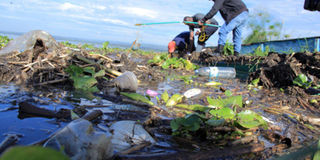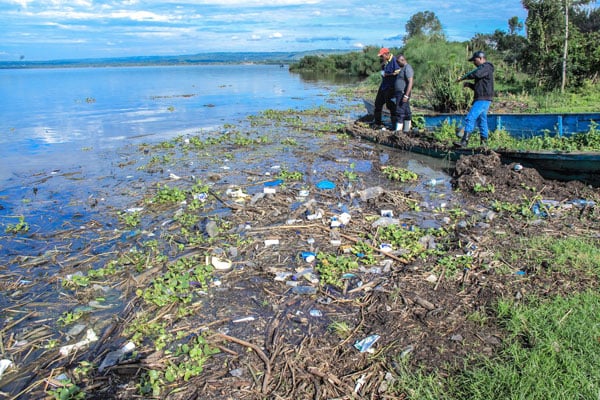Confront plastic pollution head-on

What you need to know:
The issue:
Pollution
Our view:
Plastic pollution is a complex problem that requires concerted efforts from all sectors to pave the way for a future free from the clutches of plastic pollution.
June 5 marks a significant day for the planet as we celebrate World Environment Day. The annual event serves as a powerful reminder of the critical need to protect and preserve the environment. This year’s theme focuses on solutions to plastic pollution under the campaign #BeatPlasticPollution.
This theme urges us to confront this issue head-on and explore innovative ways to tackle the pervasive problem of plastic waste. It is high time we address the environmental crisis and chart a path towards a sustainable future.
Plastic became an integral part of our daily lives, bringing convenience and functionality. However, its overuse, improper disposal, and lack of effective waste management systems have resulted in a massive accumulation of plastic waste, contaminating our land, water bodies, and ecosystems.
The detrimental impacts of plastic pollution are far-reaching, threatening wildlife, water species, and even affecting the food chain, posing potential health risks to Ugandans.
To address the crisis, we must adopt a multi-faceted approach that combines reduction, reuse, recycling, and innovation. A crucial step is reducing our reliance on single-use plastics. As the government had earlier proposed, we must promote and embrace sustainable alternatives the way it is in developed countries, such as reusable bags, bottles, and packaging materials. This shift in consumer behaviour will not only reduce plastic waste but also drive demand for environmentally-friendly alternatives, encouraging further innovation in this field. Recycling plays a pivotal role in mitigating the environmental impact of plastic.
However, it is essential to improve recycling infrastructure too, increase awareness about proper recycling practices, and invest in advanced recycling technologies. Collaboration between government, industries, and communities is necessary to establish comprehensive recycling systems that ensure plastic waste is effectively sorted, processed, and transformed into valuable resources.
By closing the loop through recycling, we will significantly reduce the demand for new plastic production and divert plastic waste from landfills and our environment.
On this World Environment Day, let us also rally around proper legal framework and implementation. Plastic pollution is a complex problem that requires concerted efforts from all sectors to pave the way for a future free from the clutches of plastic pollution.
Uganda is at a crossroads, and the decisions we make today will shape the world we leave for future generations. Let World Environment Day serve as a catalyst for change, a reminder of our duty to protect and preserve the environment.




